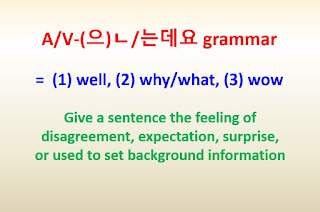Seoul Korean Level 4 Online Lessons with 35 Units
Seoul Korean Level 4 Online Lessons with 35 units is a Korean language book based on the structural approach to language learning. Its objective is to focus more on improving students' communicative skills.
Here, Korean TOPIK summarizes all the lessons of the Seoul Korean Level 4 so that you can keep tracks of your study easily. Click on the title of each unit to start studying.
Summary of SNU Korean level 4:
1과 인류의 미래에 대해 생각해 본 적이 있어요?
Lv4 U02 King Tangun founded Joseon nation.| V-도록 허락하다, V-아/어 달라고 부탁하다, A/V -(으)나, N만에 grammar
Lv4 U03 I will be like ‘a frog in a well’.| 우물 안의 개구리, V-(으)려던 참이다, N 마저, V - (으)ㄹ 정도이다, 생각하기에 따라 grammar
Lv4 U04 Probability of rain is not high.| V -(으)ㄹ 확률이 높다, N(이)라고는 N뿐이다, 골치 아프다 grammar
Lv4 U05 Having much interest in environmental issue.| N 에/에게 관심이 있다, V-고도 남다, V-(으)ㄹ 만큼, V-지 않으면 안 되다, N-별 grammar
Lv4 U06 Let’s reduce the usage of disposable goods.| N을/를 줄이다, 반응을 얻다, 무엇보다도, V-다가는, N이/가 나서다 grammar
Lv4 U07 I heard a rumor that you went for a blind date.| V 다면서 (요)?, V 다고 하더니, V는 데다가, V 다 보면, 바가지를 긁다 grammar
Lv4 U08 I heard people praised you for speaking Korean well.| A/V 다면서, V-(으)ㄴ 것이 엊그제 같다, N (으)로 가득하다, V 냐든지 V냐든지 grammar
Lv4 U09 Treating best friends like family members.| N-롭다, 그랬더니, A게 여기다, V는 관습, V 기보다는, V 더군요 grammar
Lv4 U10 Saying he used to be saved by the help of people.| V 곤 하다, Vㄴ/는 덕분에, V는 데 열중하다, 비록 A/V 지만 grammar
11과 지역에 따라 차이를 보였습니다.
Lv4 U12 It’s different depending on how thinking.| V냐에 따라 다르다, N거리, S-으나 S 으나, V (으)ㄹ 게 뻔하다 grammar
Lv4 U13 Be teased since dad cooked for.| N 와/과 달리, V 고 말고(요), 그렇다고 V는 것은 아니다, N만 V 아/어도 어딘데요 grammar
Lv4 U14 Putting more focus on teaching Korean.| V는 데 몰두하다, N에 중점을 두다, V는 사이, V 다/자/냐/라니까 grammar
Lv4 U15 Medicine is also good but resting is the best.| 불과 N 만에, N에 달하다, 일단 V(으)면, V다 하더라도, V-더니만 grammar
Lv4 U16 If you contact us in advance, we will become your legs.| V-ㄴ/는 데 반해, N에 지나지 않다, 아닌 게 아니라, 그리 V-지 않다, V- (으)려고만 들다 grammar
Lv4 U17 Lunar New Year is one of the big national holidays.| N 중의 하나이다, 손꼽아 기다리다, N에 차다 grammar
Lv4 U18 No matter children or adults, all like playing Yut.| N(이)(나) N(이)(나) 할 것 없이, V-기에 좋다 grammar
Lv4 U19 If doing our best, we can save many lives.| 마음만 먹으면, V-기는커녕, V-기조차, V-(으)리라 생각하다, 고사하고 grammar
Lv4 U20 Doesn't someone say he will buy a drink?| 기다렸다는 듯이, 주거니 받거니 하다, V-(으)ㄴ 채, V-노라면 grammar
LV4 U21 In either way, there will have good and bad points.| N에 신경 쓰다, V-지도 마, V-기가 무섭게, V-아/어 대다, V-는 바람에, 뒷전이다 grammar
Lv4 U22 Does the current job not match your aptitude?| 로 인해서, V-아/어 봤자, 아주 V, N(에) 못지않게, 마지못해 V, N에 불과하다, N-(이)로구나 grammar
Lv4 U23 Internet is so convenient.| V-(으)ㄹ지 V-(으)ㄹ지, 이용하다, 안절부절못하다, 한 N(이)라도 V-(으)면 grammar
Lv4 U24 Arirang-A Korean Folk song | N에 이르다, V-든지 V-든지, N(으)로 나뉘다, N에 바탕을 두다, N(이)라고 불리다 grammar
Lv4 U25 Hungbu and Nolbu: The Folktale.| N-질, 두고 보다, 정신 못 차리다, 정신 없다 grammar
Lv4 U26 The map was completed despite of the sacrifices.| 무릅쓰고, V-게 된 동기, V-는 데 일생을 바치다, V-겠다는 결심을 하다, 오죽하겠어요? grammar
26과 희생을 무릅쓰고 지도를 완성했어요.
Lv4 U27. Speech tells the person's personality.| N(이)야말로, N스럽다, 비롯하다, 무작정, 버릇하다 grammar
27과 말이야말로 그 사람의 인격을 말해 줍니다
Lv4 U28 Do you agree or oppose it?| S다고 야단이다, V-다느니 V-다느니, N에 일리가 있다, V는 수가 많다, N(으)로 취급하다 grammar
28과 찬성하는 쪽이에요? 반대하는 쪽이에요?
Lv4 U29. If it is fate, we will meet again.| 인연이 있다, V아/어서는 안 된다, V-았/었더라면, V을래야 V을 수 없었다 grammar
29과 인연이 있으면 언젠가 또 만나게 되겠지
Lv4 U30. Seoul is the best city of Korea.| N(으)로 보나 N(으)로 보나, N(으) 손꼽히는N, N임에 틀림없다, V-(으)ㅁ에 따라 grammar
30과 서올은 한국 제일의 도시이다
Lv4 U31. Diet is spreading like fashion.| N을/를 막론하고, V-다기보다는, V-기까지 하다, V-느니 차라리, V-는 반면에 grammar
31과 다이어트가 유행처럼 퍼지고 있어요.
Lv4 U32. A pet is better than a child.| V-다 V-다 하면서, 얼굴 내밀다, V-는 게 고작이다, 어찌나 V-(으)ㄴ/는지, 마음을 붙이다 grammar
32과 애완동물이 자식보다 낫다
Lv4 U35 I heard you went backpacking in Europe?| 여간 V-지 않다, V-기는(요), N에 지장이 있다, N에 능통하다 grammar
35과 유럽에 배낭여행 갔다 왔다면서?
Label: Online Courses











